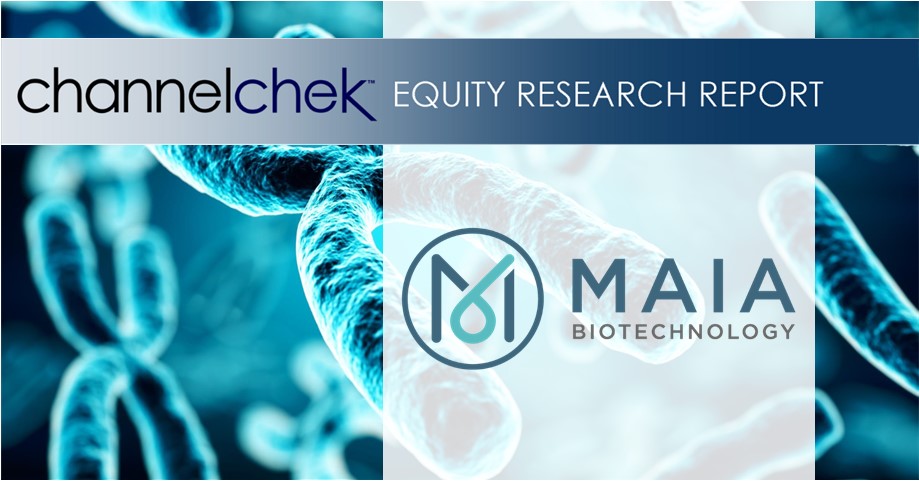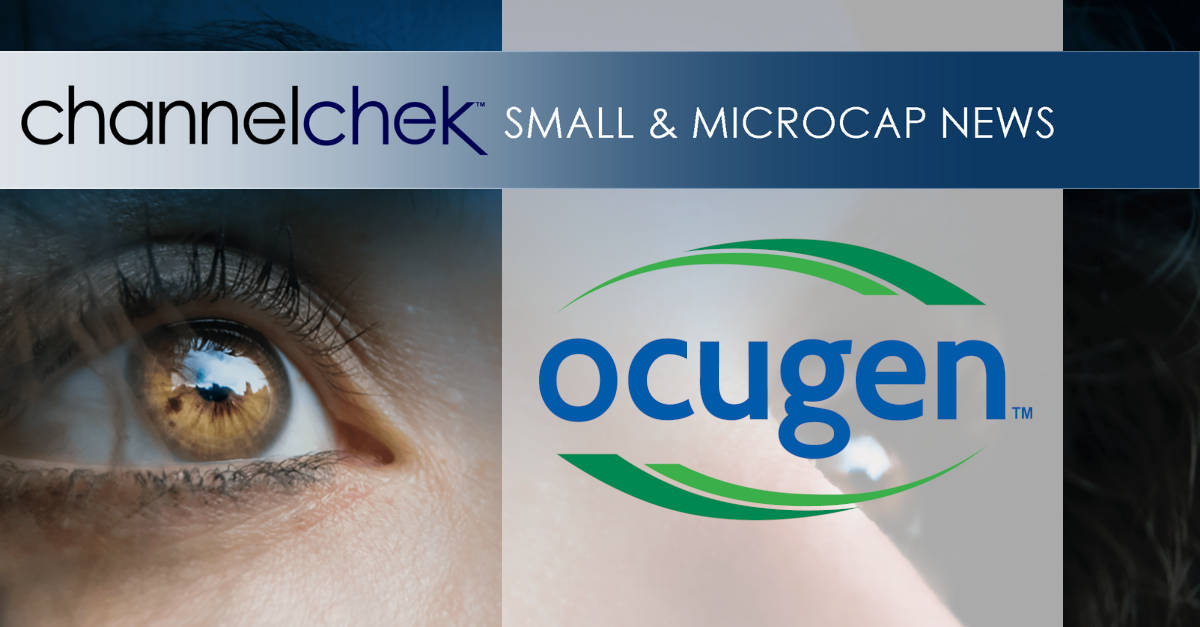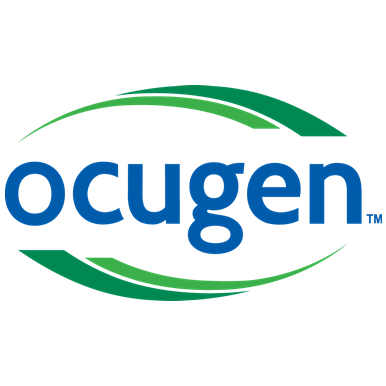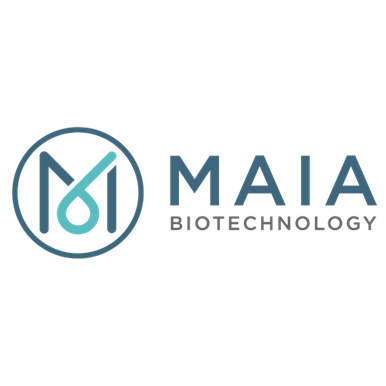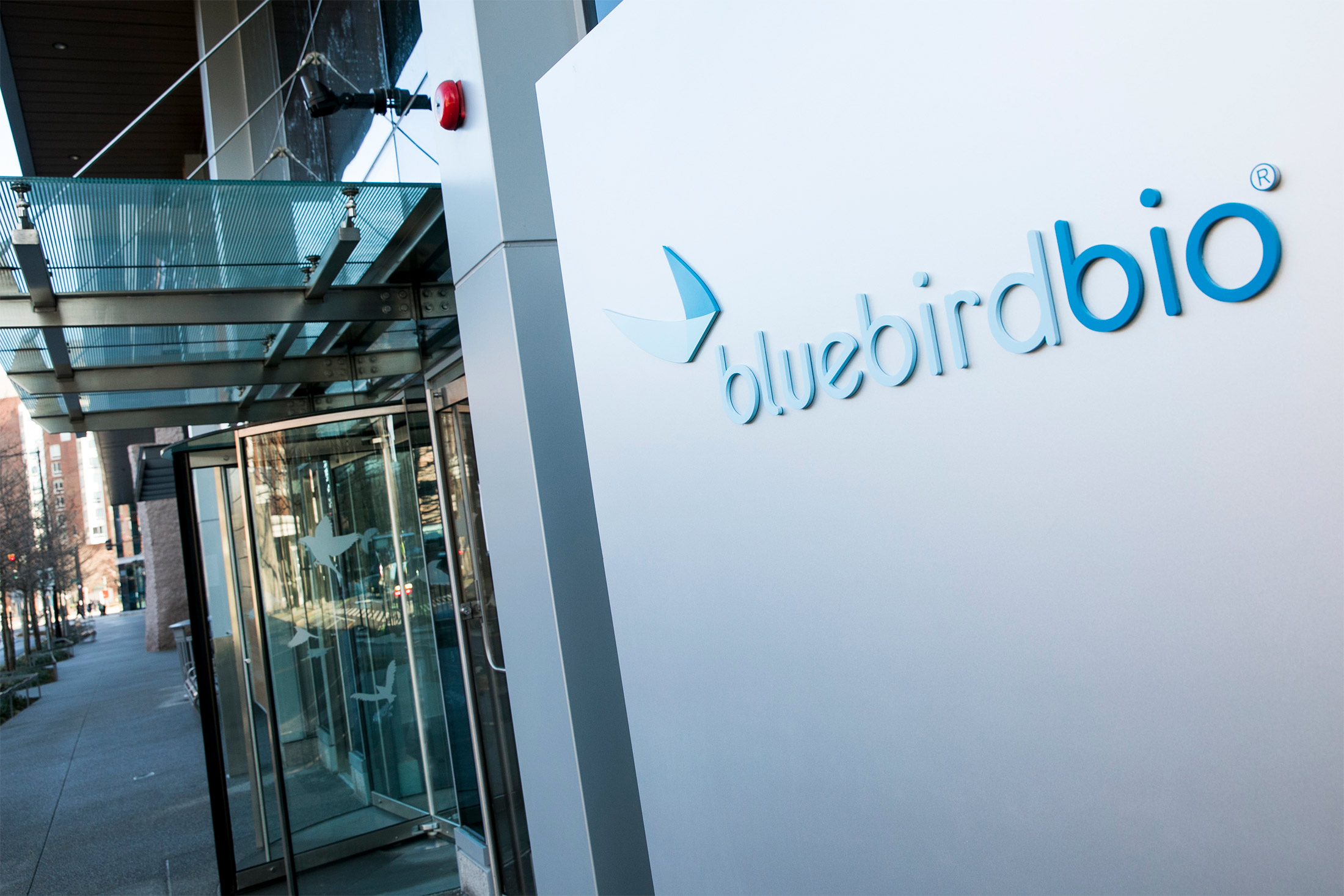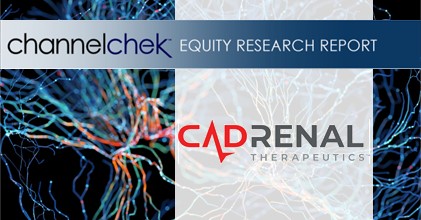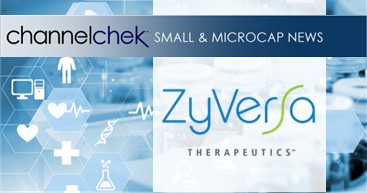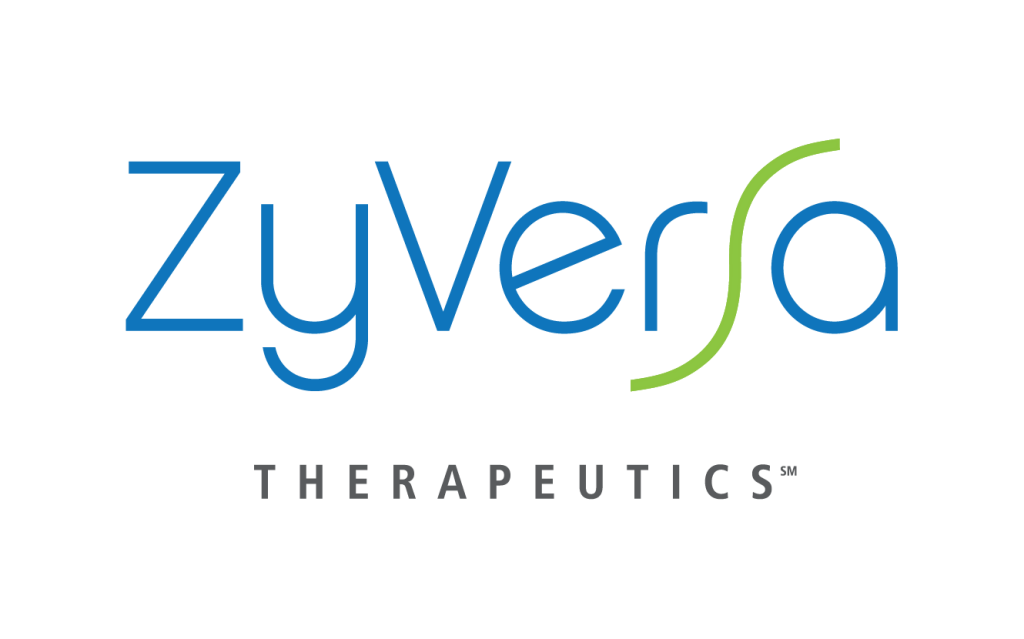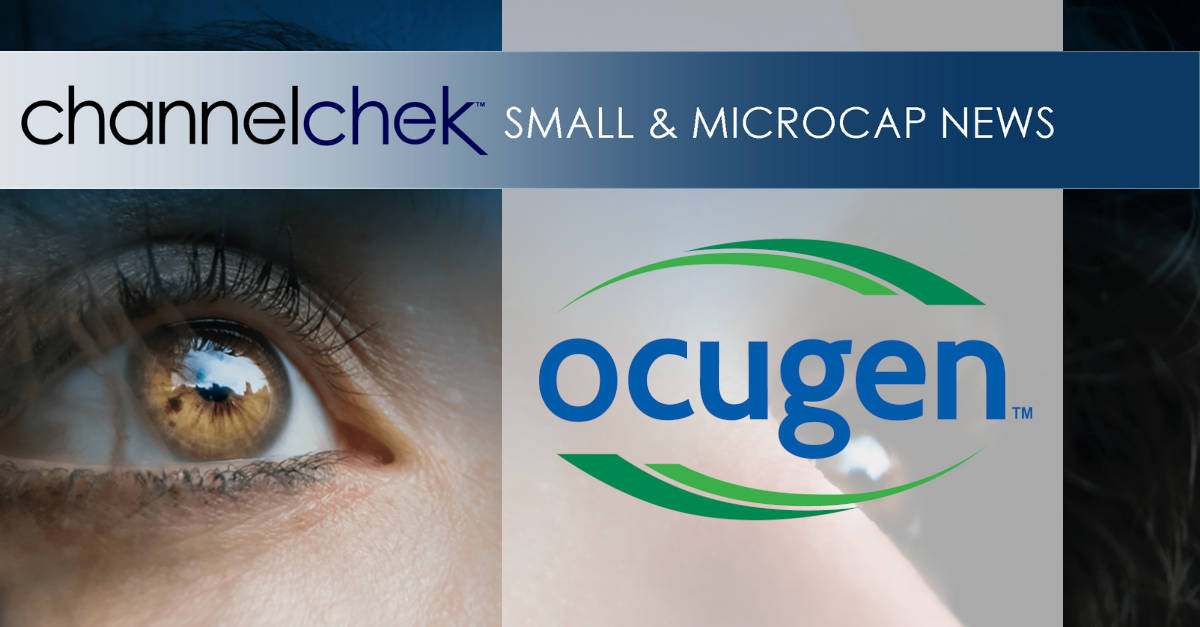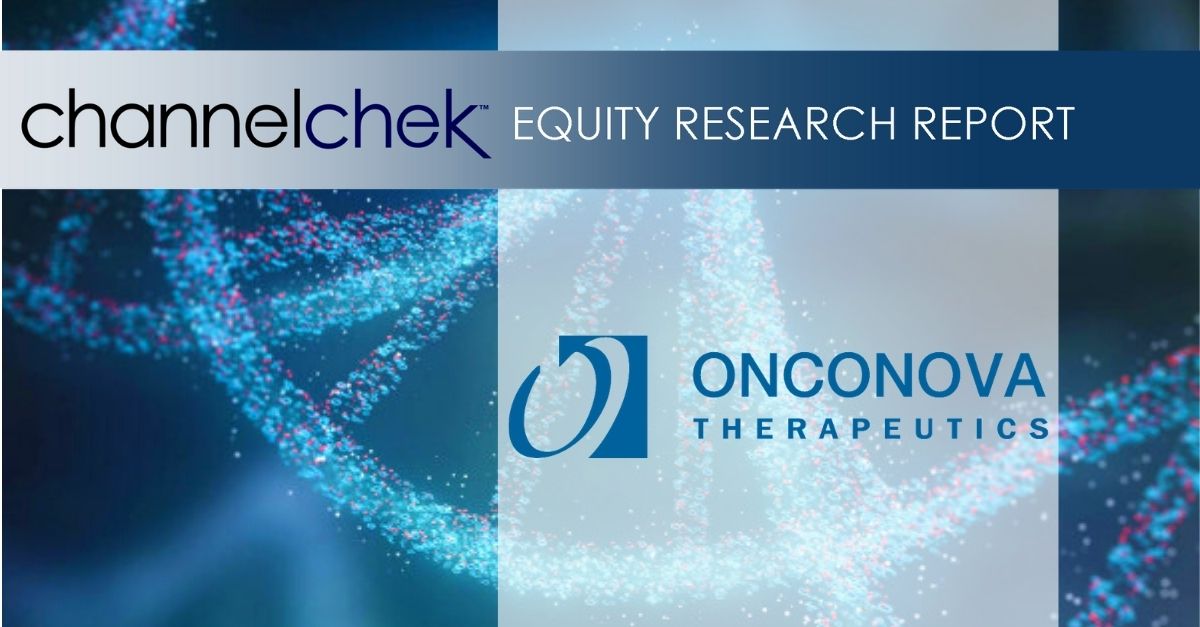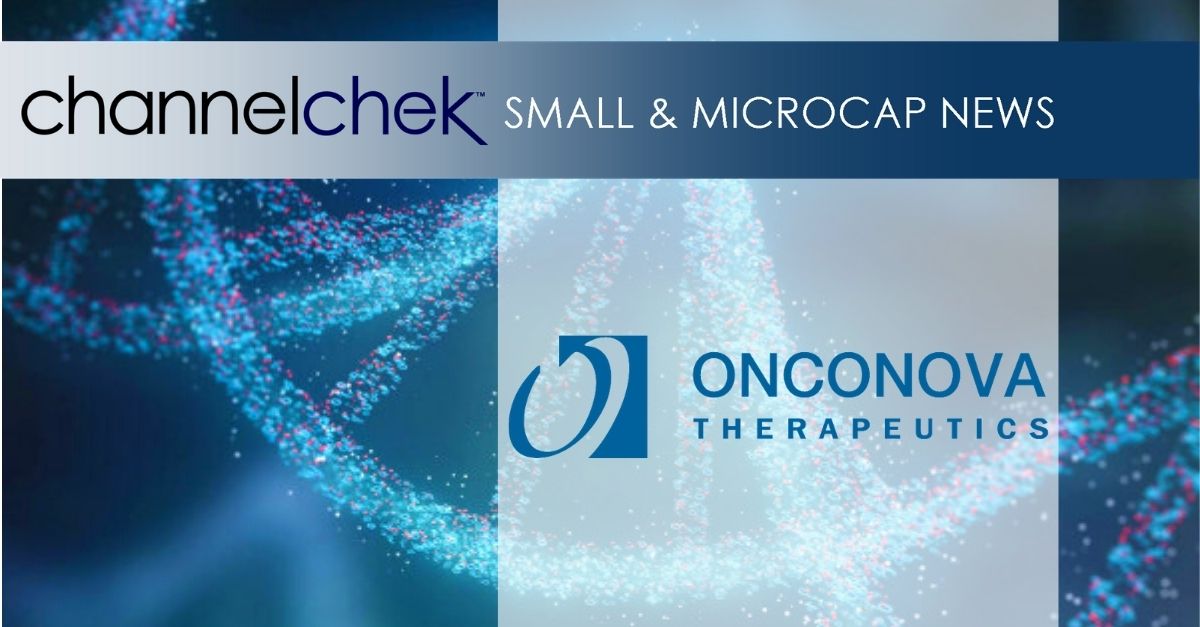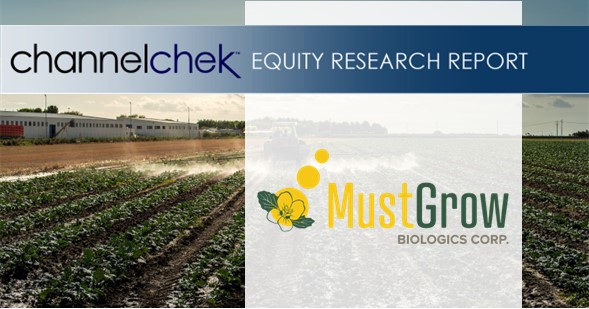Research News and Market Data on ONTX
Dec 12, 2023
Preclinical data show that narazaciclib treatment led to significant tumor growth inhibition, demonstrating synergy with standard-of-care ibrutinib, in ibrutinib-sensitive and -resistant settings
Early Phase 1/2 studies suggest potential for an improved profile and daily dosing
Dose escalation is underway in lead indication of Low Grade Endometrioid Endometrial Carcinoma (LGEEC), with plans to define the Recommended Phase 2 Dose (RP2D) and prepare for registrational studies, with a planned update in H1 2024
NEWTOWN, Pa., Dec. 12, 2023 (GLOBE NEWSWIRE) — Onconova Therapeutics, Inc. (NASDAQ: ONTX), (“Onconova” or “the Company”), a clinical-stage biopharmaceutical company focused on discovering and developing novel products for patients with cancer, today announced preclinical data, highlighting narazaciclib’s preclinical activity in Bruton’s kinase inhibitor (BTKi)-resistant mantle cell lymphoma (MCL), in a poster presented on December 11, 2023 at the 65th Annual Meeting of the American Society for Hematology (ASH 2023) in San Diego.
“We are pleased to have shared data at ASH 2023 from preclinical studies with narazaciclib in MCL models. These results, which are consistent with data presented this year at the international MCL conferences, demonstrate that treatment with narazaciclib led to significant tumor growth inhibition when used as a single agent and that combination with ibrutinib demonstrated synergy, in both ibrutinib-sensitive and -resistant in vitro and in vivo settings,” said Steve Fruchtman, M.D., President and Chief Executive Officer. “These data are important because they provide further evidence for the potential use of narazaciclib in cancers with cyclin over-expression and elaborate our understanding of narazaciclib’s mechanism of action, including its ability to promote G1 cell cycle blockade.”
Dr. Fruchtman continued, “We believe that these data, along with the preclinical data presented on Friday, December 8th at the San Antonio Breast Cancer Symposium (SABCS), further underscore the impressive and differentiated profile of narazaciclib. The data presented at SABCS highlight narazaciclib’s multi-kinase activity, its ability to target resistance pathways missed by other CDK4/6 inhibitors, and its differentiated anti-tumor and immunomodulatory activity. The data presented at ASH 2023 show that narazaciclib, in combination with BTKi’s such as ibrutinib, also trigger metabolic reprogramming alongside DNA damage.”
“The totality of these data is helping us to shape the clinical program for narazaciclib, including the lead indication of LGEEC, with further potential to expand into additional investigator-sponsored studies in breast, ovarian, and other cancers. We are pleased with the early Phase 1/2 data for narazaciclib monotherapy and in combination with letrozole, showing lower levels of neutropenia and diarrhea, and the potential for once daily dosing. Both of these attributes could position narazaciclib as a differentiated and improved CDK4/6i. Looking ahead, we are enthusiastic to advance the clinical program for narazaciclib in 2024 and to update our stakeholders regarding our progress, including the planned completion of dose escalation studies, definition of an RP2D, and development of our registrational trial plans for LGEEC. The data presented at ASH suggest narazaciclib is a drug with the potential to target a variety of cancer indications with an unmet medical need, including MCL,” concluded Dr. Fruchtman.
Poster Highlights
Title: Narazaciclib, a differentiated CDK4/6 antagonist, prolongs cell cycle arrest and metabolomic reprogramming, enabling restoration of ibrutinib sensitivity in BTKi-resistant mantle cell lymphoma
Objectives: To evaluate the activity and mechanism of action of narazaciclib as a single agent and in combination with ibrutinib, in comparison to the standard-of-care ibrutinib, in preclinical models of MCL that are sensitive and resistant to ibrutinib treatment.
Snapshot of the Results and Conclusions:
- Tumor Growth Inhibition: Narazaciclib showed safety and efficacy as a single agent in preclinical MCL models, including ibrutinib-resistant settings, with significant reductions in cell viability.
- Combination Synergy: The narazaciclib plus ibrutinib combination showed synergy in vitro and in vivo, especially in ibrutinib-resistant models, with overall greater synergy, measured by lower “Combination Index” values, versus ibrutinib-sensitive cells.
- Cell Cycle Blockade: The combination of narazaciclib plus ibrutinib induces a superior G1 cell cycle blockade in both ibrutinib-sensitive and ibrutinib-resistant MCL cells.
- Metabolic programming: In ibrutinib-resistant cases, the synergy between narazaciclib and ibrutinib triggers metabolic reprogramming alongside DNA damage, mediated by the USP24 and P53 axis, as evidenced by several assays to assess mitochondrial metabolism.
Together, these preclinical data suggest that narazaciclib has important single agent activity and the potential to restore ibrutinib sensitivity in BTKi-resistant models, successfully meeting the primary objective of the study.
A copy of the poster is available on the “Scientific Presentations” section of the Onconova website.
About Onconova Therapeutics, Inc.
Onconova Therapeutics is a clinical-stage biopharmaceutical company focused on discovering and developing novel products for patients with cancer. The Company’s product candidates, narazaciclib and rigosertib, are proprietary targeted anti-cancer agents designed to disrupt specific cellular pathways that are important for cancer cell proliferation.
Narazaciclib, Onconova’s novel, multi-kinase inhibitor (formerly ON 123300), is being evaluated in a Phase 1/2 combination trial with the estrogen blocker letrozole in advanced endometrial cancer (NCT05705505). Based on preclinical and clinical studies of CDK 4/6 inhibitors, Onconova believes narazaciclib has broad potential and is also evaluating opportunities for combination studies with narazaciclib and letrozole in additional indications, including breast cancer, ovarian cancer, multiple myeloma, and mantle cell lymphoma.
Rigosertib is being studied in an investigator-sponsored trial strategy to evaluate the product candidate in multiple indications, including a dose-escalation and expansion Phase 1/2a study of oral rigosertib in combination with nivolumab in patients with KRAS+ non-small cell lung cancer (NCT04263090), a Phase 2 program evaluating oral or IV rigosertib monotherapy in advanced squamous cell carcinoma complicating recessive dystrophic epidermolysis bullosa (RDEB-associated SCC) (NCT03786237, NCT04177498), and a Phase 2 trial evaluating rigosertib in combination with pembrolizumab in patients with metastatic melanoma (NCT05764395).
For more information, please visit www.onconova.com.
Forward Looking Statements
Some of the statements in this release are forward-looking statements within the meaning of Section 27A of the Securities Act of 1933, as amended, Section 21E of the Securities Exchange Act of 1934, as amended, and the Private Securities Litigation Reform Act of 1995, and involve risks and uncertainties. These statements relate to Onconova’s expectations regarding its clinical development and trials, its product candidates, its business and financial position. Onconova has attempted to identify forward-looking statements by terminology including “believes,” “estimates,” “anticipates,” “expects,” “plans,” “intends,” “may,” “could,” “might,” “will,” “should,” “preliminary,” “encouraging,” “approximately” or other words that convey uncertainty of future events or outcomes. Although Onconova believes that the expectations reflected in such forward-looking statements are reasonable as of the date made, expectations may prove to have been materially different from the results expressed or implied by such forward looking statements. These statements are only predictions and involve known and unknown risks, uncertainties, and other factors, including the success and timing of Onconova’s clinical trials, investigator-initiated trials and regulatory agency and institutional review board approvals of protocols, Onconova’s collaborations, market conditions and those discussed under the heading “Risk Factors” in Onconova’s most recent Annual Report on Form 10-K and quarterly reports on Form 10-Q. Any forward-looking statements contained in this release speak only as of its date. Onconova undertakes no obligation to update any forward-looking statements contained in this release to reflect events or circumstances occurring after its date or to reflect the occurrence of unanticipated events.
Company Contact:
Mark Guerin
Onconova Therapeutics, Inc.
267-759-3680
ir@onconova.us
https://www.onconova.com/contact/
Investor Contact:
Bruce Mackle
LifeSci Advisors, LLC
646-889-1200
bmackle@lifesciadvisors.com

